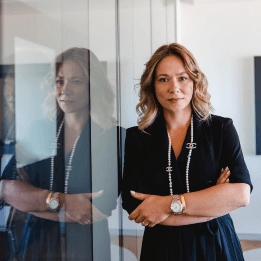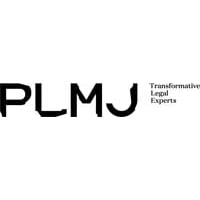

Head of legal Iberia and Global co-head of McKinsey legal sustainability | McKinsey & Company



Ida de Brandão Triães
Head of legal Iberia and Global co-head of McKinsey legal sustainability | McKinsey & Company
Why are in-house lawyers well-placed to drive change within their organisations?
For several reasons, in-house lawyers are uniquely positioned to drive change within their organisations.
On the one hand, there is the traditional value proposition that lawyers bring – which these days should be the baseline of any in-house legal department: Firstly, in-house lawyers have a deep understanding of their organisation’s business and operations, which enables them to identify areas where change is needed. Lawyers are, by design, problem-solvers and solution-driven professionals. Secondly, in-house lawyers have a holistic view of legal and regulatory issues that impact their organisations. This enables them to identify emerging legal and regulatory trends and advise their organisations on proactively responding to them and being ahead of the curve. Thirdly, in-house lawyers are well-placed to collaborate with other departments within their companies, such as HR, finance, and operations, which collectively constitute a company’s second line of defence and transformation. By working closely with these departments, in-house lawyers can drive change by identifying opportunities to streamline processes, enhance risk management, and improve compliance. Lastly, in-house lawyers can leverage their unique position to drive change by building relationships with key stakeholders within their organisations. As trusted advisors, they can influence decision-making and champion initiatives that align with the organisation’s values and goals.
On the other hand, we are utilising our unrivalled distinctiveness to motivate the legal department and build impactful offerings. Over the years, McKinsey Legal has developed a new approach that sets us apart and makes us second to none regarding in-house legal departments and the ability to drive change in their organisations.
We have achieved this by being innovators within the company itself and in contrast to the traditional approach of in-house departments. We have materialised this through a range of initiatives. We have modernised our operating model to bring the best resources from around the globe and pull in the right expertise in real-time to serve our stakeholders promptly. We have positioned ourselves as peers to our CxOs, and we partner with the business. By intentionally creating new working methods, we have pushed the boundaries in how we think about client service. For example, we have improved the delivery models for our work and speak the same language as our clients. We have doubled down on talent management, empowering our people to unleash their passions and bring those passions to work. We have positioned our lawyers as content creators and designers and set up a McKinsey Legal Lab as our incubator of innovations (from Innovation Olympics to a Legal Podcast and Blog to partnering with the outside world via collaboration initiatives), all while upholding the mission of protecting our firm.
How do you suggest in-house lawyers build strong relationships with business partners?
Building strong relationships takes time and requires a proven track record as a thought partner and counsel. However, it also requires disrupting the traditional support model and acknowledging lawyers as entrepreneurs, traditionally reserved only for the business side.
Conventionally, in-house teams were perceived as technicians who supported the business in enhancing client service by negotiating and making legal agreements designed to enable the company to provide expertise to private and public clients across all sectors and industries. Strong legal departments were measured by their ability to help ‘speed to contract’ through contract design, process design, and the creative use of technology to support the business’s priorities. They were also measured by their ability to manage risk, reconcile the firm’s economic and legal interests at all stages of the contract, and do so holistically.
While this still holds, it should be the baseline. Our in-house mission is about being a trusted advisor to the company’s leadership across their entire agenda. We bring compelling legal perspectives and state-of-the-art solutions to connect the dots in complex situations. It is a permanent symbiotic dance with all dimensions of the business, as we are constantly evolving and upgrading our client service while strengthening legal risk management. For this to happen, our lawyers must be fully immersed in the business and integrated partners in its advancement.
Trust is the key to any relationship. Building it takes time along a set of commitments that materializes in the assurance that in-house counsels have their stakeholders’ backs, and they do so by being strategic, solution-oriented, speaking the company’s language, having excellent communications skills and the ability to be transparent and honest with their stakeholders. Combined, when in-house lawyers get these commitments right, their stakeholders make sound business judgment decisions more often.
Head of legal Iberia and Global co-head of McKinsey legal sustainability | McKinsey & Company
Global associate general counsel and legal lead Portugal and Spain | McKinsey & Company